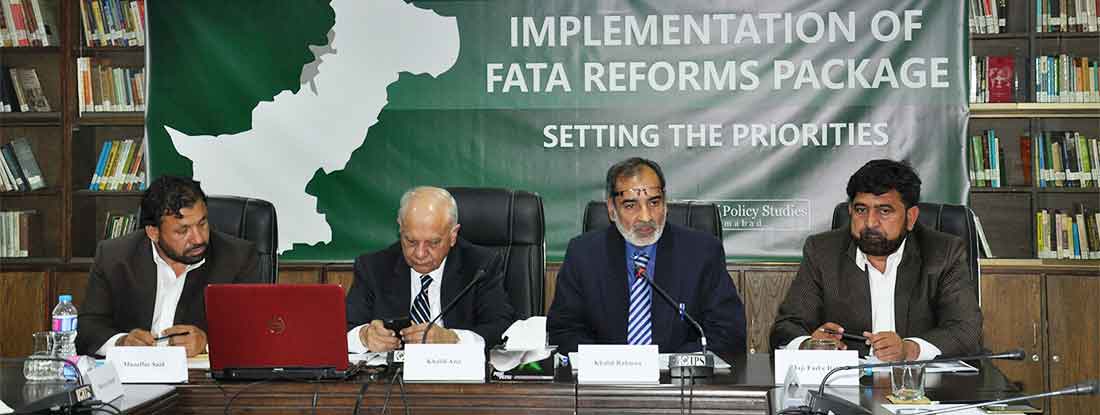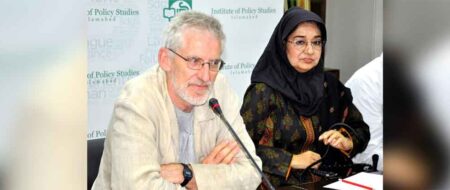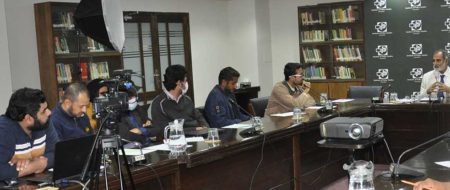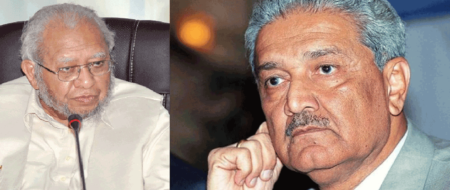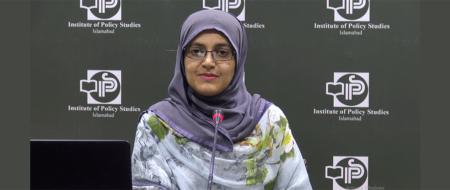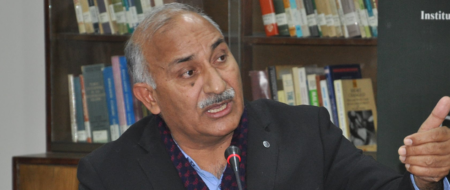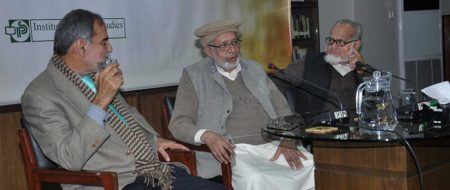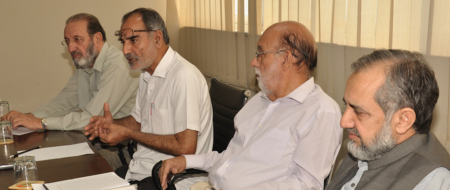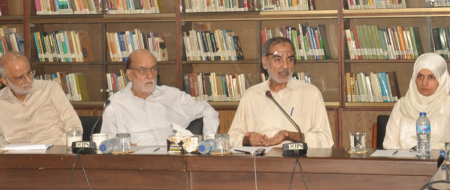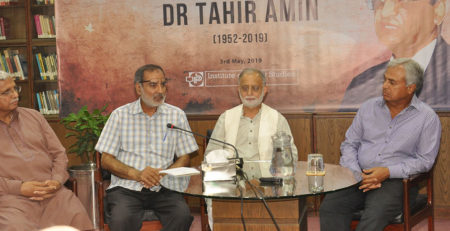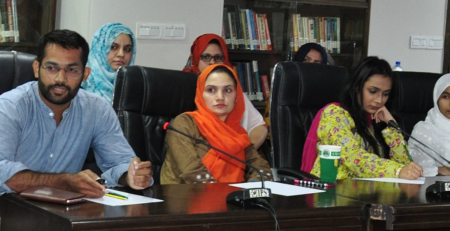Immediate constitutional measures urged for FATA reforms
 In prioritising the way forward for the implementation of FATA Reforms Package, approved by the federal cabinet on 2 March 2017, representatives of KP government, political parties, academia, media, political and human rights activists, elders from FATA and members of the civil society concluded that though there may be some flaws and paradoxes in the proposed reforms package, status quo was not certainly an option. They called for immediate constitutional and legislative measures to mainstream FATA and expressed apprehensions that any further delay may provide opportunity to vested interests to sabotage this historic and critical move.
In prioritising the way forward for the implementation of FATA Reforms Package, approved by the federal cabinet on 2 March 2017, representatives of KP government, political parties, academia, media, political and human rights activists, elders from FATA and members of the civil society concluded that though there may be some flaws and paradoxes in the proposed reforms package, status quo was not certainly an option. They called for immediate constitutional and legislative measures to mainstream FATA and expressed apprehensions that any further delay may provide opportunity to vested interests to sabotage this historic and critical move.
“We have to move forward, set our priorities straight and put our house in order to mainstream FATA to end the decades-old sense of frustration and deprivation among its people.”
This was the crux of the conference titled “Implementation of FATA Reforms Package: Setting the Priorities” held at the Institute of Policy Studies (IPS) in collaboration with the Ministry of SAFRON on March 16, 2017.
The panelists of the session, which was presided by DG-IPS Khalid Rahman, included: Khalid Aziz, former chief secretary, KP, Muzaffar Said, KP’s minister of finance, Haji Fazal Ilahi, Advisor to Chief Minister, KP, Afrasiab Khattak, former senator and central leader of Awami National Party, Akhundzada Chattan, central leader of Pakistan People’s Party and former MNA from FATA, Shahryar Afridi, PTI leader and MNA, Senator Sajjad Hussain Turi, Ambassador (r) Ayaz Wazir, Brigadier (r) Said Nazir, Sardar Khan, president, FATA Political Alliance, Dr Ashraf Ali, Dr. Shahryar Khan and Karam Elahi.
Speaking on the occasion, former chief secretary and a seasoned political analyst Khalid Aziz said that over 73 per cent of citizens in FATA were living below poverty line, adding it was imperative that the reform process was carried forward to ensure relief to the citizens of FATA. He informed that this current package pursues the goal to bring FATA into mainstream and provide equal rights to its citizens in the modern era Pakistan.
Giving details of the government’s initiatives, Aziz expressed the hope that the reform package will prove as a game changer not only for the people of FATA but the entire region in general. Elaborating the methodology for the phased implementation of the reforms agenda, the former chief secretary said the proposed 10 years comprehensive socio-economic development plan offers enough for the reconstruction of the damaged infrastructure besides creating job and employment opportunities to the unemployed youth.
Afrasiab Khattak said the government has to come up with a time-frame for materializing the agenda. Pointing out to some of the lacunas and ambiguities the program has, Khattak called for a participatory approach. He added, the KP government, being important stakeholders must be fully taken on board while making any decision on this front. In case of merger, Khattak suggested, an appropriate representation of the FATA people should be ensured on the floor of the assembly as well as on the cabinet to satisfy their grievances they have developed over the years.
Building on the same point, Haji Fazal Ilahi said that how come the elected provincial representatives from FATA could be made answerable to the governor. He asked the government to overcome the ambiguities and come up with a clear-cut and well defined program for FATA’s merger into KP. He suggested that the chief minister, being the chief executive of the province as an important stakeholder, should be in the driving seat for driving the reform agenda.
KP’s fincance minister Muzaffar Said, while all praise for the government’s reform agenda asked for more clarity on some of the points. He suggested that government should make its point clear on how the Riwaj Act will work in the reformed FATA and what would be the working relationship between the elected representatives of KP and those coming out from FATA who would be answerable to the governor.
He stressed immediate constitutional and legislative measures to mainstream FATA and assured that issues related to NFC Award and distribution of resources between KP and FATA can be resolved amicably when representatives of FATA will be elected for KP assembly in 2018.
Expressing his reservation on the proposed Riwaj Act, Shehryar Khan raised questions on the will of the government. He said womenfolk should be given proper representation and due say in framing strategies for the implementation of the reforms agenda.
Ayaz Wazir, a former diplomat, suggested that three per cent share in the NFC award should be raised to seven per cent to address the long-standing issues of the marginalized and neglected region.
Sardar Khan while counting FATA people’s issues and challenges under the given circumstances asked for immediate materialization of the government reforms agenda to avoid from being spoiled at the hands of the spoilers and give the war-stricken people of FATA a chance to live in peace.
Akhundzada Chattan called for revisiting Pakistan’s Afghan policy as the country’s peace was directly linked with peace in the bordering Afghanistan. Any reform agenda would be meaningless unless there is peace in the region, he added.
Earlier, in his opening remarks, DG-IPS Khalid Rahman stressed that the issue was of great importance in national, regional and global scenario. He said the situation in FATA calls for urgency but on the other hand, a phased and gradual approach to the implementation of the reform agenda was also necessary. Therefore, he recommended that a careful balanced approach was necessary for the implementation of the reforms agenda.


